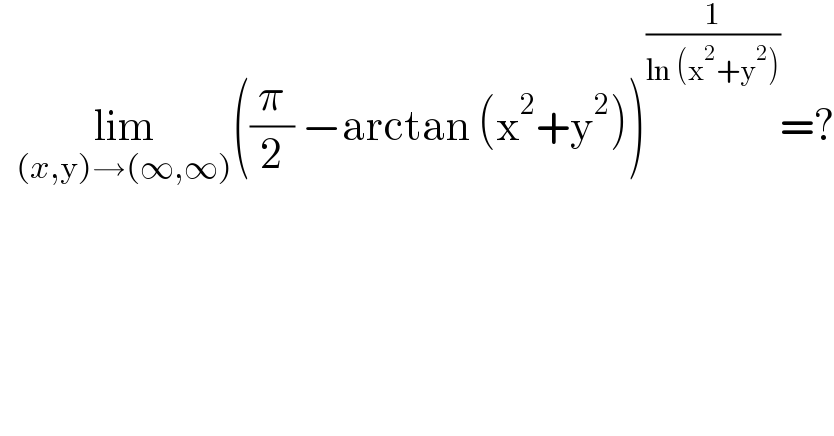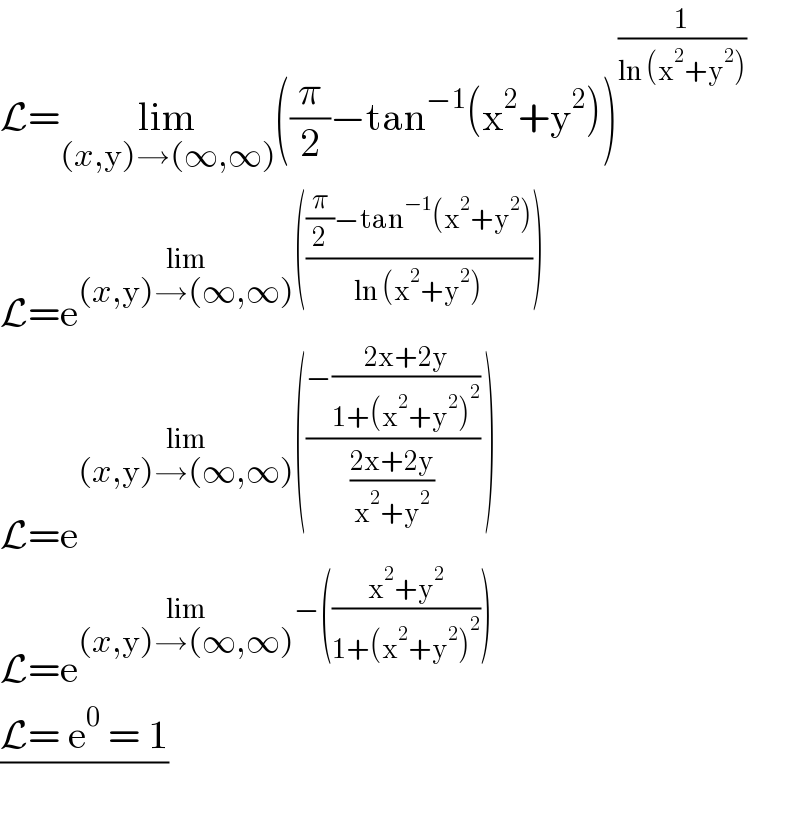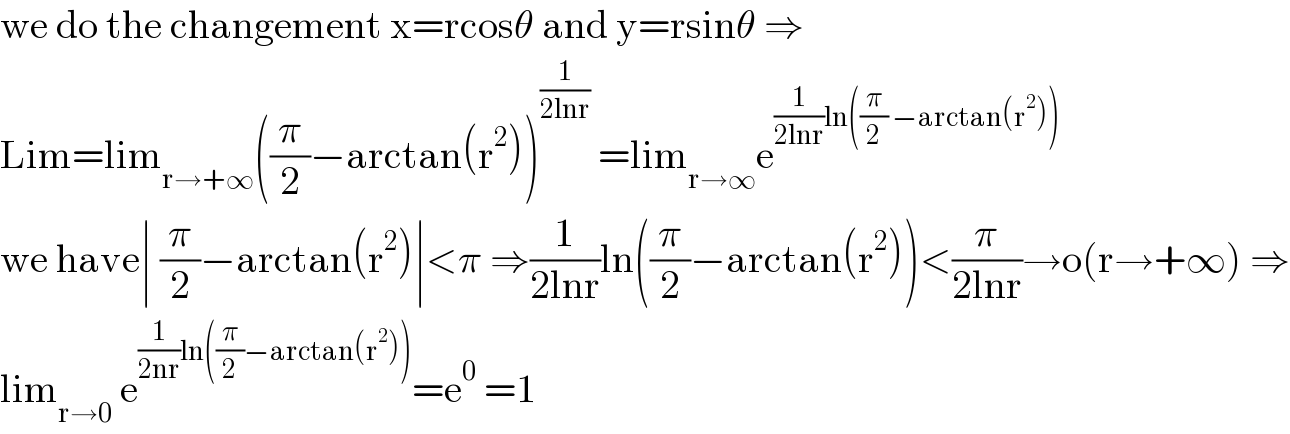
Question and Answers Forum
Question Number 129120 by liberty last updated on 13/Jan/21

Answered by benjo_mathlover last updated on 13/Jan/21

Answered by mathmax by abdo last updated on 14/Jan/21

Commented by mathmax by abdo last updated on 14/Jan/21

